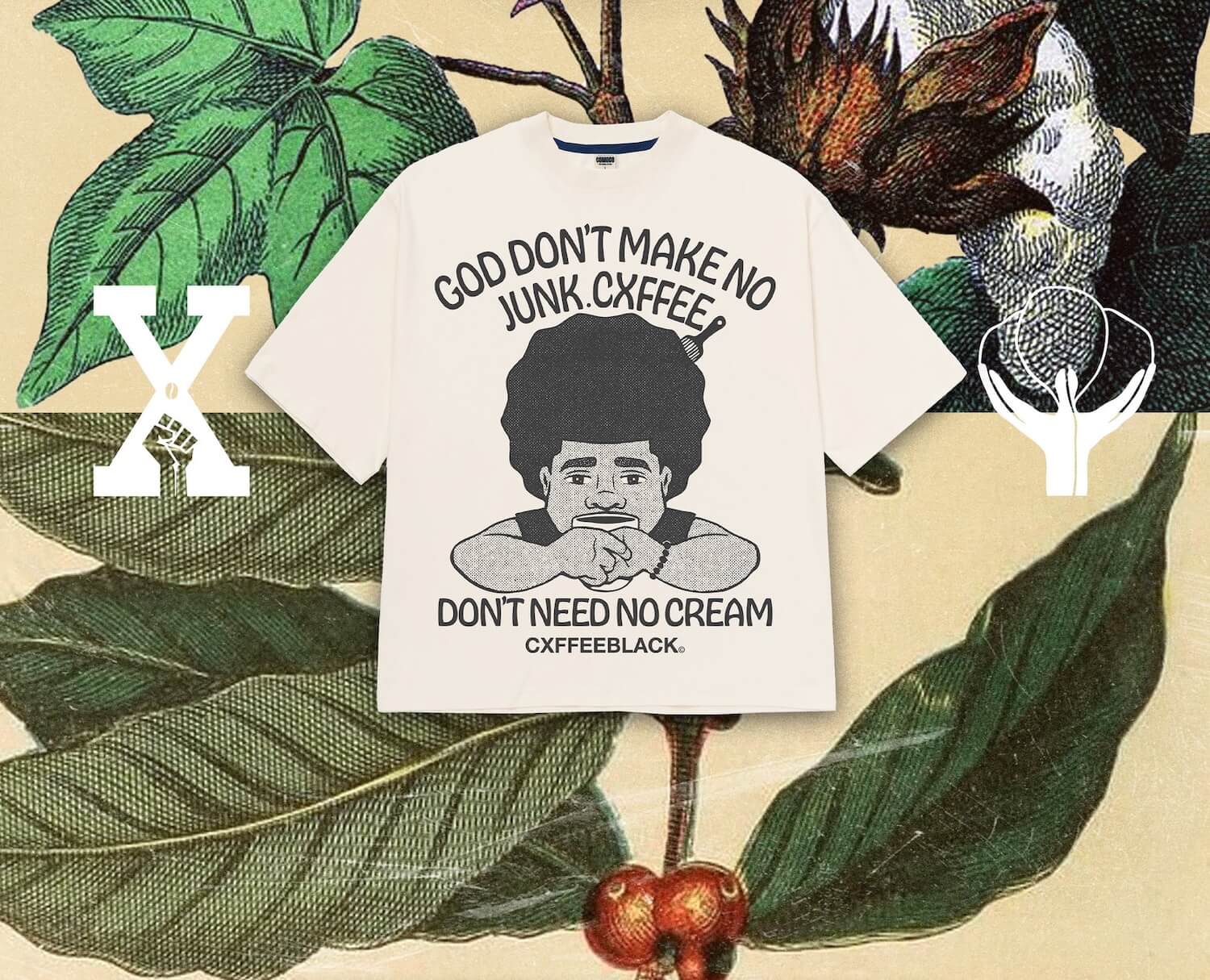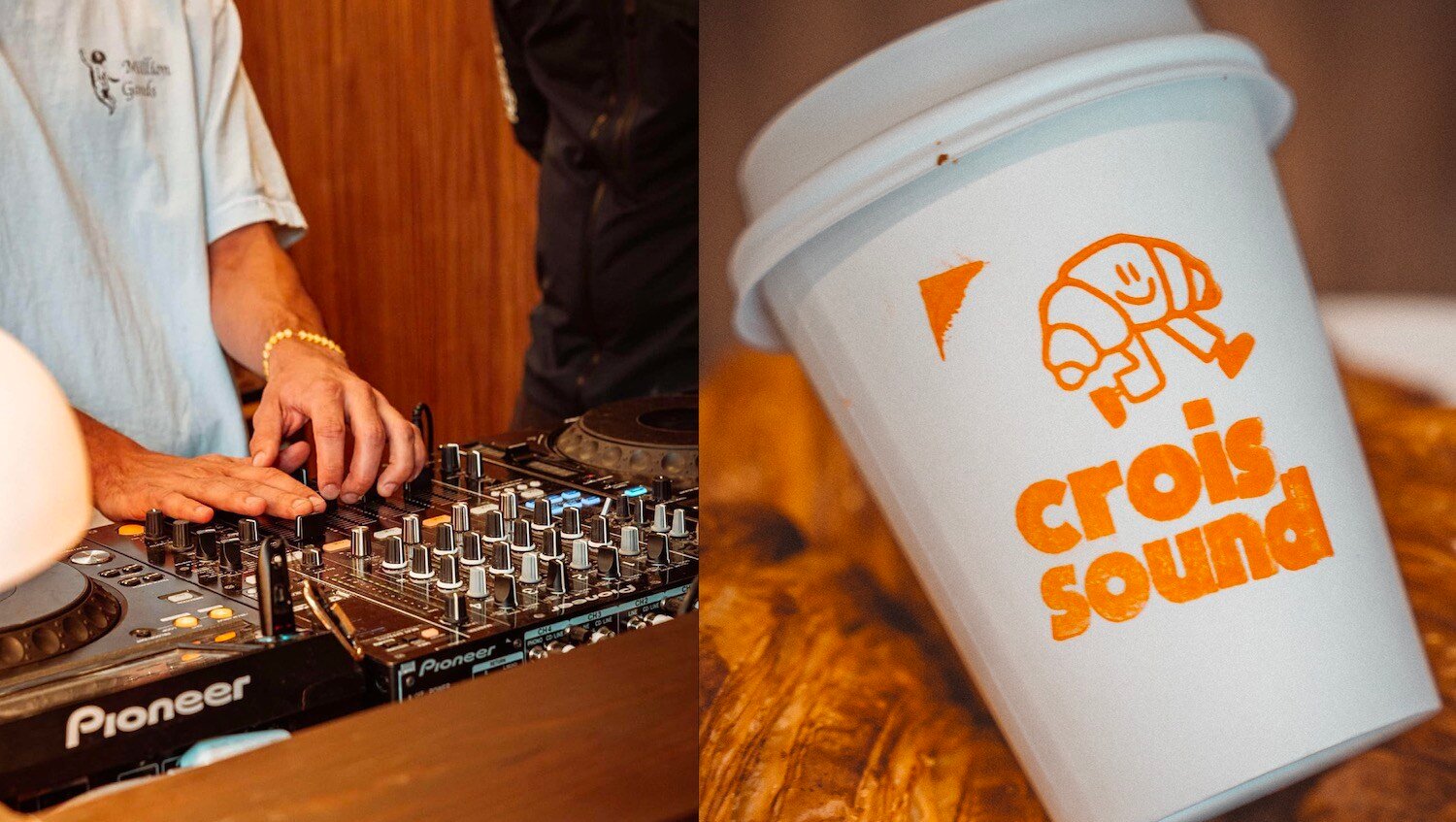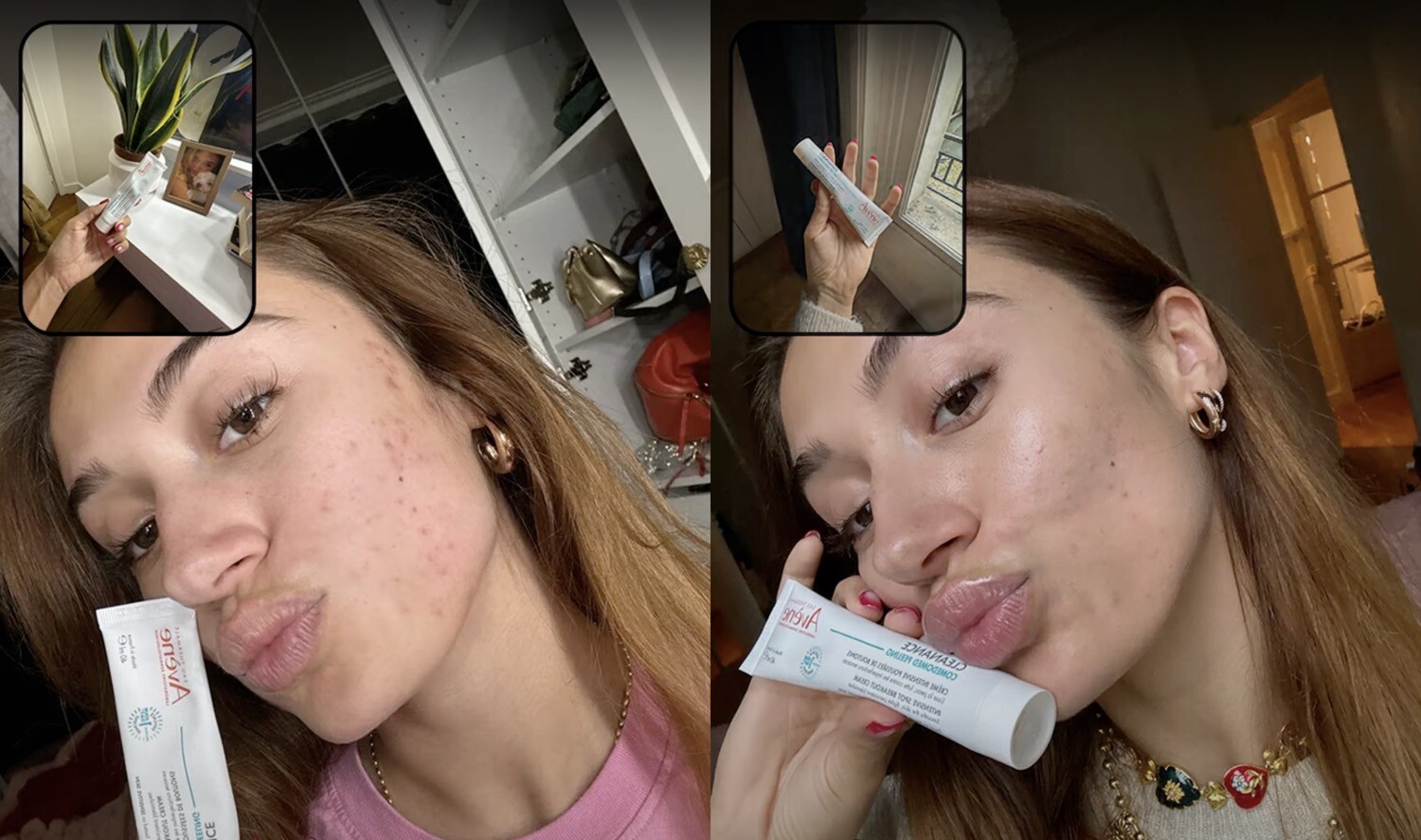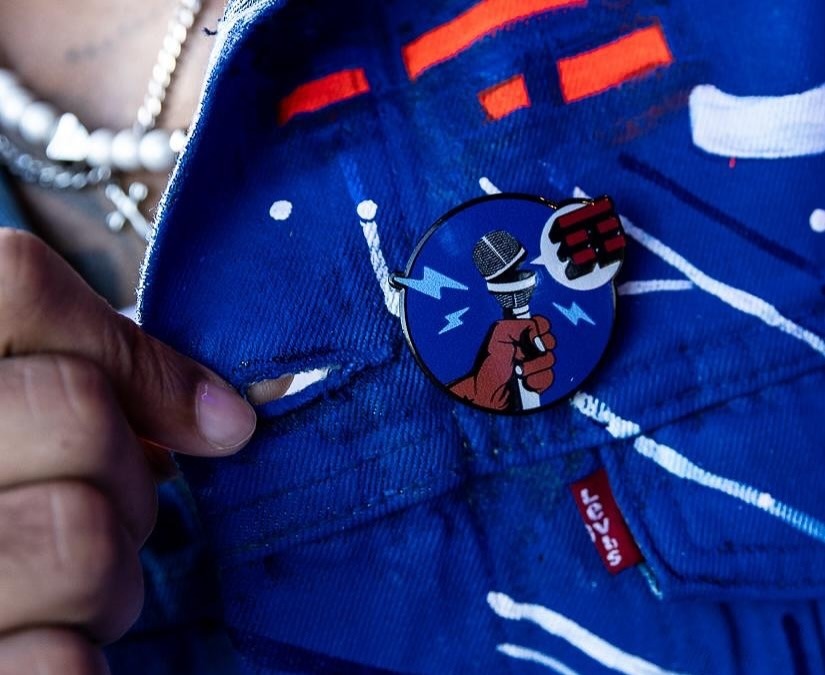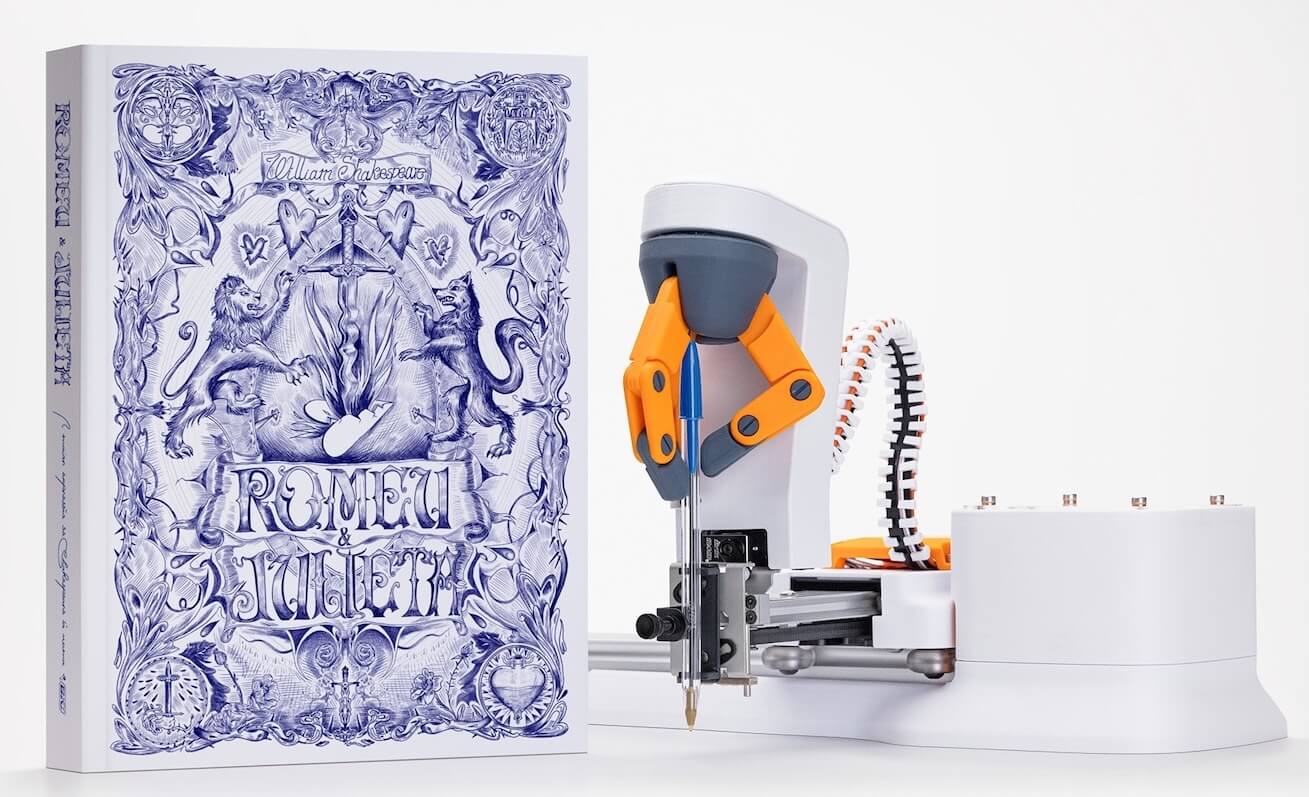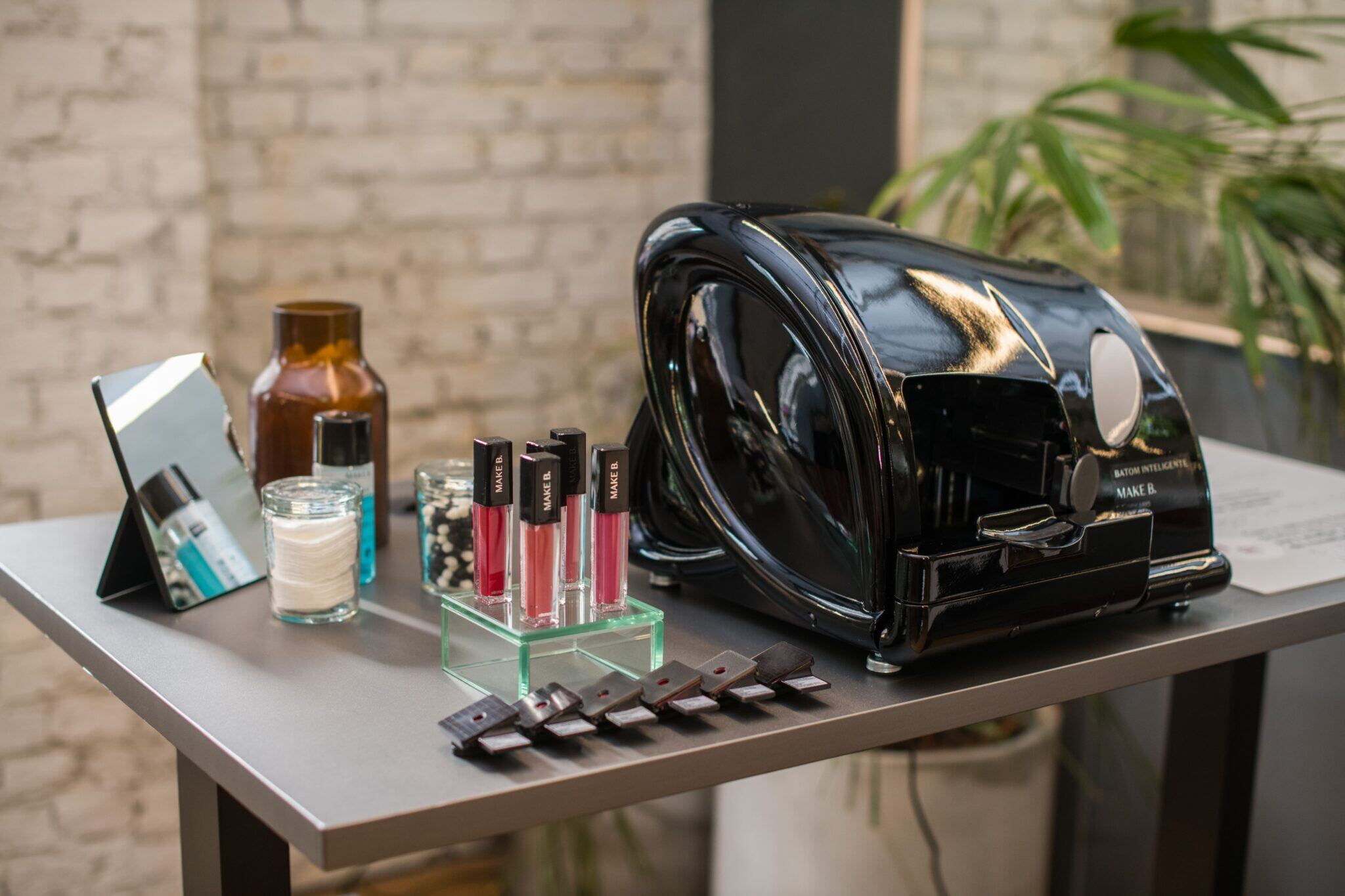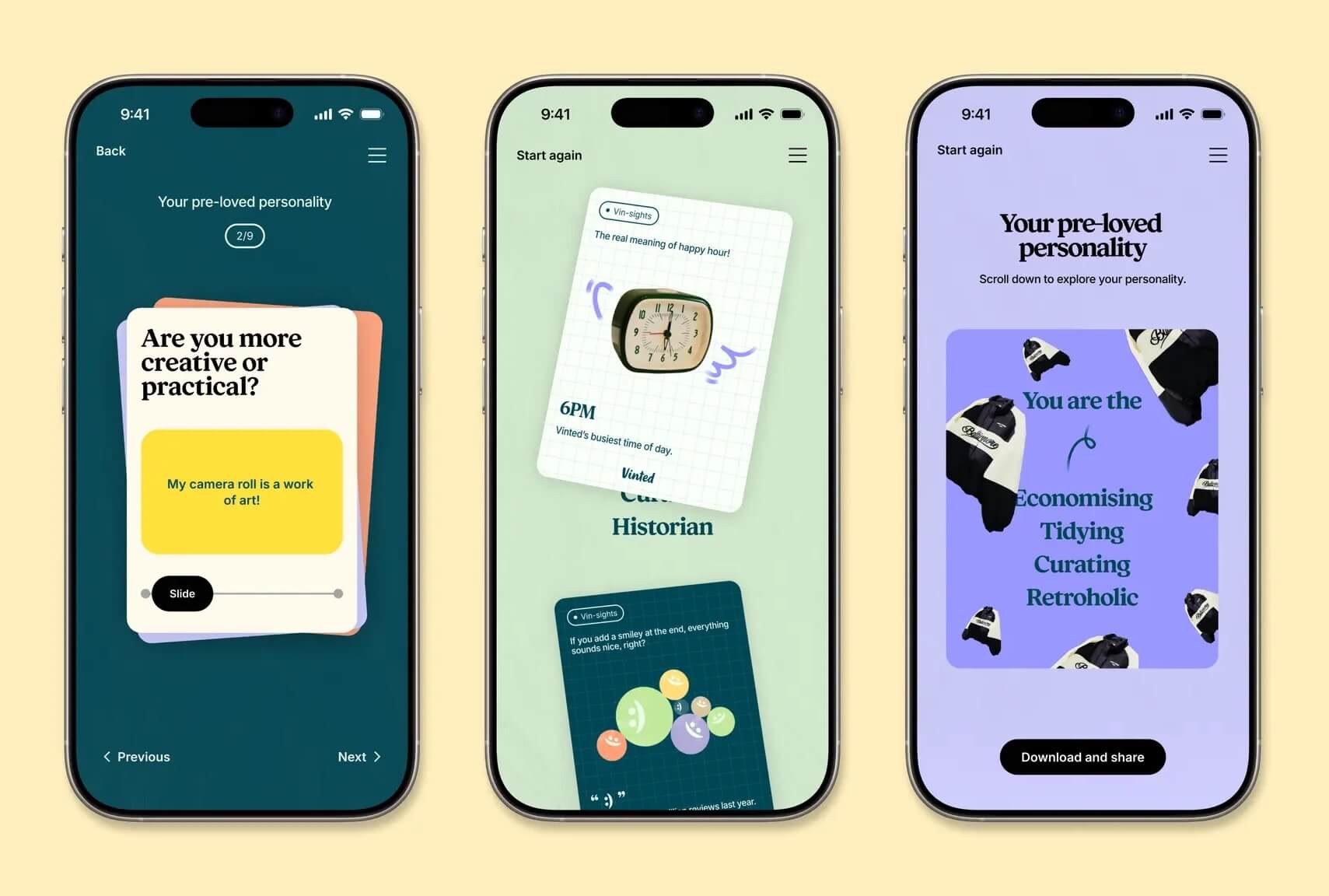In a powerful reimagining of historically exploitative industries, Memphis-based coffee company Cxffeeblack and sustainable textile brand COMOCO Cotton have joined forces to create a limited-edition t-shirt that transforms cotton and coffee into vehicles for Black economic empowerment. The God Don't Make No Junk t-shirt combines COMOCO's cotton, grown by Black farmers, with natural dyes made from Cxffeeblack's Ethiopian-sourced Guji Mane coffee.
The partnership brings together two organizations working to reshape their respective industries from the ground up. COMOCO Cotton operates within a 150-mile radius for its entire production process, from farm to finished garment, boosting the local economy while drastically reducing energy consumption. Meanwhile, Cxffeeblack established the first entirely Black coffee supply chain from Ethiopia to Tennessee and runs educational initiatives like a barista exchange program between Africa and the United States.
"Cotton and coffee built global economies on Black labor. It's time for them to build Black futures," says Stephen Satterfield, founder of COMOCO Cotton and host of Netflix's High on the Hog. The project aims to demonstrate how Black creatives can reclaim supply chains and reshape industries through ownership and cultural autonomy. The t-shirts are available for preorder now and are priced at USD 85, which includes a small bag of Guji Mane coffee and a free download of the Cxffee Makes You Black album.
Select your country
- Argentina
- Australia
- Austria
- Belgium
- Brazil
- Cambodia
- Canada
- Chile
- China
- Colombia
- Costa Rica
- Croatia
- Czechia
- Denmark
- Estonia
- Finland
- France
- Germany
- Ghana
- Greece
- Guatemala
- Hong Kong
- Hungary
- Iceland
- India
- Indonesia
- Ireland
- Israel
- Italy
- Japan
- Kenya
- Latvia
- Lithuania
- Malaysia
- Mexico
- Morocco
- Netherlands
- Nigeria
- Norway
- NZ
- Paraguay
- Phillippines
- Poland
- Portugal
- Puerto Rico
- Romania
- Serbia
- Singapore
- Slovakia
- Slovenia
- South Africa
- South Korea
- Spain
- Sweden
- Switzerland
- Taiwan
- Thailand
- Turkey
- UAE
- UK
- Ukraine
- US
- Uruguay
- Venezuela
- Vietnam
Select your country
- Argentina
- Australia
- Austria
- Belgium
- Brazil
- Cambodia
- Canada
- Chile
- China
- Colombia
- Costa Rica
- Croatia
- Czechia
- Denmark
- Estonia
- Finland
- France
- Germany
- Ghana
- Greece
- Guatemala
- Hong Kong
- Hungary
- Iceland
- India
- Indonesia
- Ireland
- Israel
- Italy
- Japan
- Kenya
- Latvia
- Lithuania
- Malaysia
- Mexico
- Morocco
- Netherlands
- Nigeria
- Norway
- NZ
- Paraguay
- Phillippines
- Poland
- Portugal
- Puerto Rico
- Romania
- Serbia
- Singapore
- Slovakia
- Slovenia
- South Africa
- South Korea
- Spain
- Sweden
- Switzerland
- Taiwan
- Thailand
- Turkey
- UAE
- UK
- Ukraine
- US
- Uruguay
- Venezuela
- Vietnam

